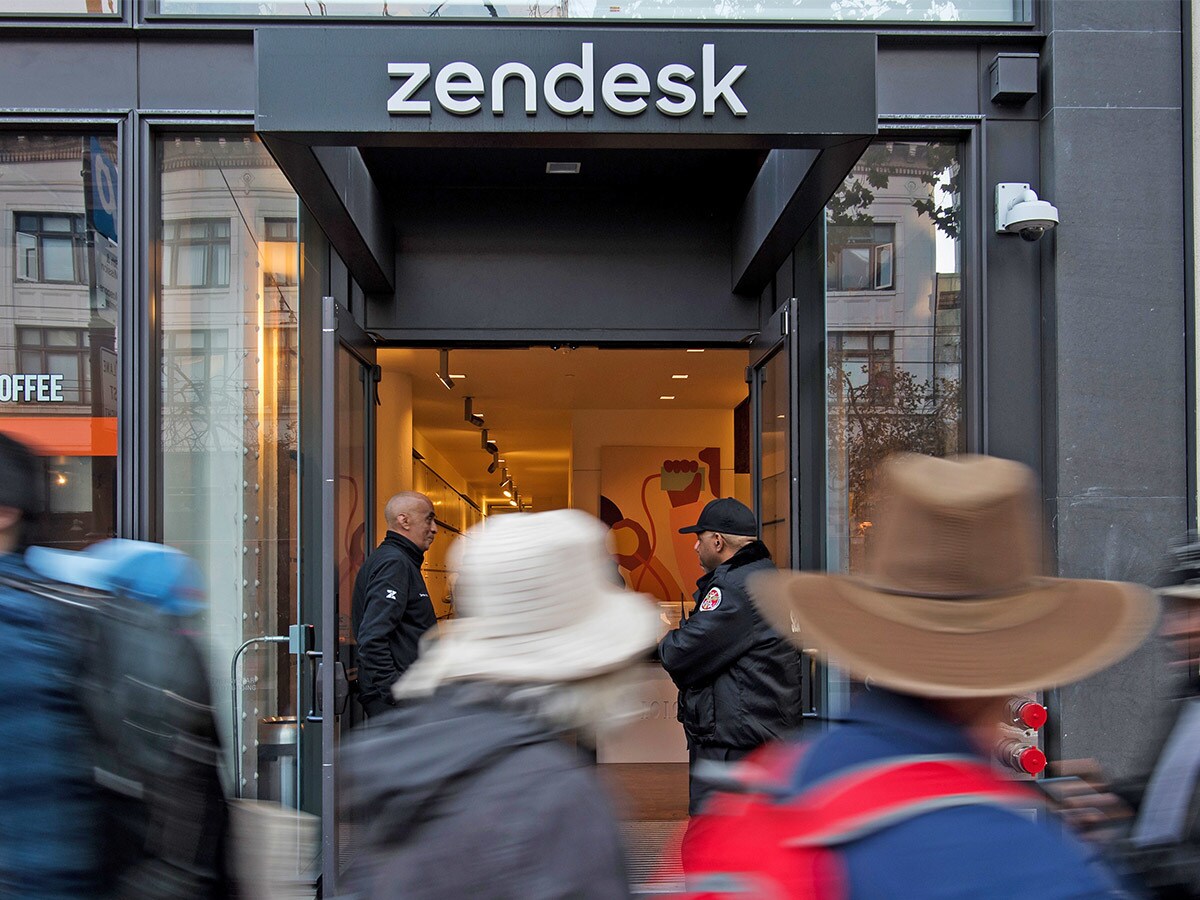For the past decade, Silicon Valley tech giants have dominated the markets. They’re among the world’s most valuable companies, collectively worth trillions of dollars. In 2020 however, they could be dethroned.
As global regulators continue to corner these behemoths in courtrooms over their software market power, use of personal data and influence over the flow of news and information, one sector has been steadily making a quiet ascent.
Software as a Service (SaaS) is a software licensing and delivery model facilitated by the cloud, and many of its stocks are flying. Designed to track the performance of these SaaS companies, two benchmark funds – First Trust Cloud Computing [SKYY] and Invesco Dynamic Software [PSJ] – have climbed a massive 121% and 152% respectively in the past five years.
152%
Gains of the Invesco Dynamic Software fund over the past 5 years
They’ve not only outperformed the tech-heavy Nasdaq’s 91% return in the same period of time but the broader market, with the S&P 500 gaining just 58%.
While FAANG stocks – Facebook [FB], Apple [AAPL], Amazon [AMZN], Netflix [NFLX], Alphabet [GOOGL] – have historically been responsible for most of the S&P 500’s gains, SaaS stocks have turned the tide.
Triple threat
The consolidated gains of Shopify [SHOP], Paycom [PAYC], AppFolio [APPF], Alteryx [AYX] and Atlassian [TEAM] in the past five years are more than triple that of FAANG’s combined.
In the past five or six years, software stocks have become “very interesting” according to Howard Lindzon, founder of venture capital firm Social Leverage.
Lindzon has been investing in enterprise stocks for more than 10 years. He started when Salesforce [CRM] was the only pure play in the space. The concept of cloud software was new to the world back then, as the company was building one of the very first cloud computing products.
But a lot has changed since then. There’s a lot more venture capital going into the space, which has stretched valuations considerably. “That’s not something I would have expected 10 years ago,” Lindzon tells Opto.
“That’s the biggest thing that's changed is peoples’ expectations that everything is enterprise. In the end, it’s a hard sell. You have great companies like Zendesk [ZEN], Salesforce and Twilio [TWLO]; they do acquisitions, they lock down their customers, they're doing a better job of making it harder for startups to break in.”
“You have great companies like Zendesk, Salesforce and Twilio; they do acquisitions, they lock down their customers, they're doing a better job of making it harder for startups to break in” - Howard Lindzon
Indeed, the cycle has been extended because Salesforce has shown other companies how to “stifle competition” through use of acquisitions “and with all this money flowing in, it’s going to be a lot more complicated,” Lindzon says, adding that “it'll be harder to pick winners”.
He describes Salesforce as a “boa constrictor”, acquiring companies and sometimes digesting them from up to six months to a year. That makes it very hard to predict when enterprise firms are going to go “shopping”, but assuming the markets stay relatively healthy Lindzon thinks there may be some more M&A activity on the horizon.
Whether these under the radar software stocks will continue to clock such large gains in the years ahead will come down to their resilience to a market meltdown. But with investor’s willing to pay top dollar for them, we may just need a new acronym.
About the author
Howard Lindzon is a financial analyst, trader, seed investor and author. He is the founder of venture capitalist firm Social Leverage and the co-founder of social media platform for traders and investors, StockTwits. He posts a daily blog at howardlindzon.com. Some of his most notable investments have been Robinhood, Bitly, Etoro and LifeLock. Some of the software stocks that he’s most bullish on are Coupa [COUP], Alteryx and Twilio.
Disclaimer Past performance is not a reliable indicator of future results.
CMC Markets is an execution-only service provider. The material (whether or not it states any opinions) is for general information purposes only, and does not take into account your personal circumstances or objectives. Nothing in this material is (or should be considered to be) financial, investment or other advice on which reliance should be placed. No opinion given in the material constitutes a recommendation by CMC Markets or the author that any particular investment, security, transaction or investment strategy is suitable for any specific person.
The material has not been prepared in accordance with legal requirements designed to promote the independence of investment research. Although we are not specifically prevented from dealing before providing this material, we do not seek to take advantage of the material prior to its dissemination.
CMC Markets does not endorse or offer opinion on the trading strategies used by the author. Their trading strategies do not guarantee any return and CMC Markets shall not be held responsible for any loss that you may incur, either directly or indirectly, arising from any investment based on any information contained herein.
*Tax treatment depends on individual circumstances and can change or may differ in a jurisdiction other than the UK.
Continue reading for FREE
- Includes free newsletter updates, unsubscribe anytime. Privacy policy





